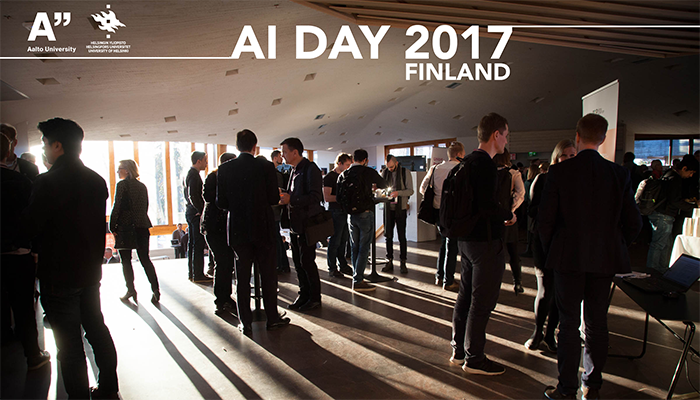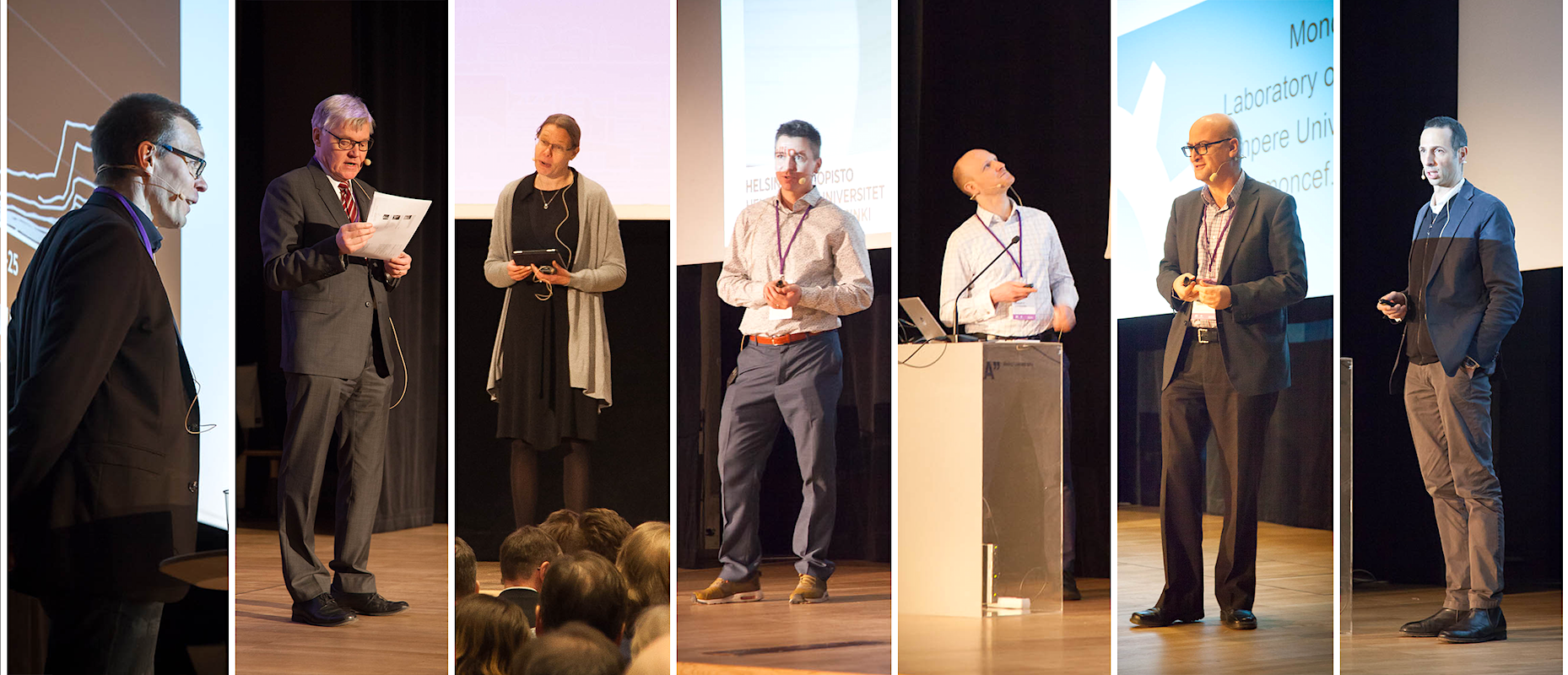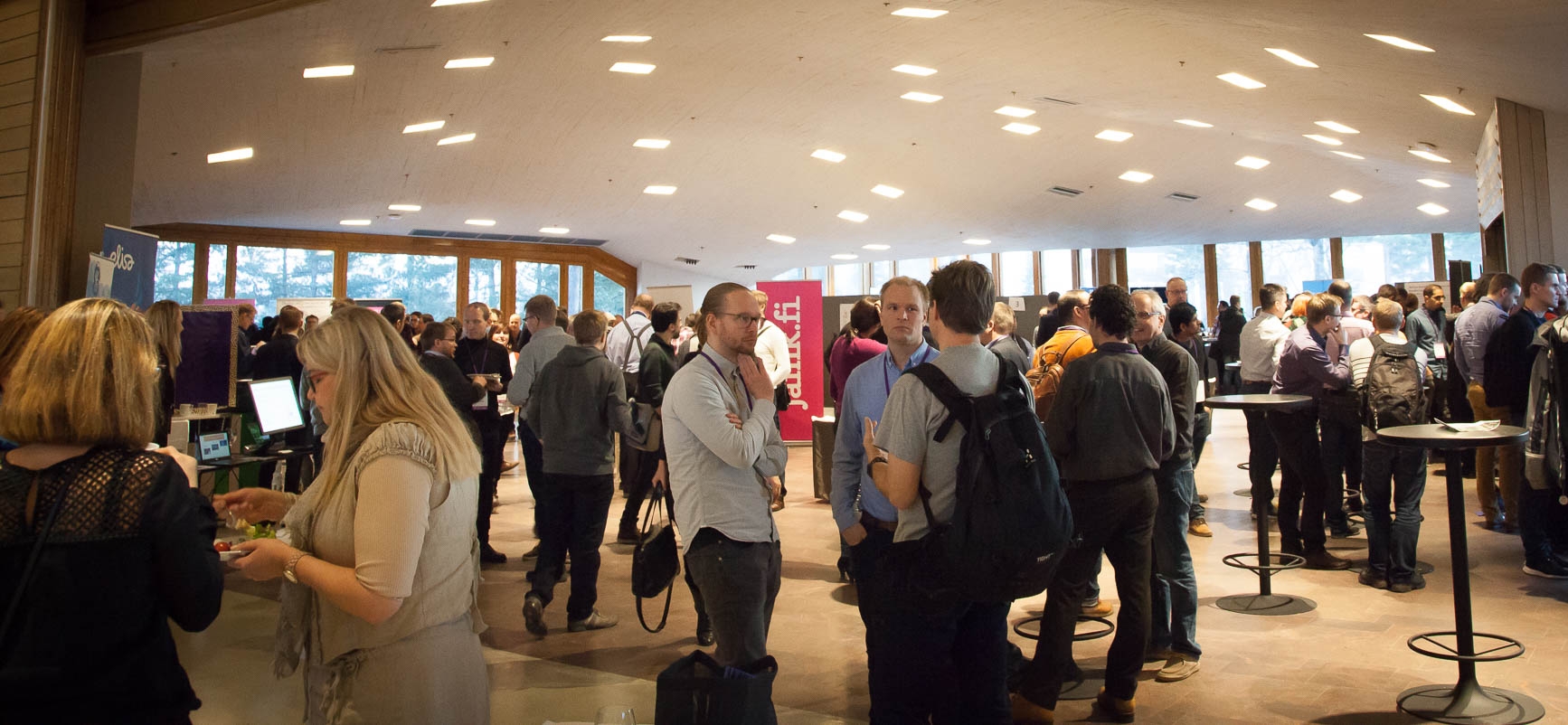On Articial Intelligence Day on 13 December 2017, 600 artificial intelligence experts and enthusiasts gathered in Dipoli, Aalto University’s newly-renovated main building.
The organiser, the new Finnish Center for Artificial Intelligence FCAI established by Aalto University and the University of Helsinki, wished to promote matchmaking, information sharing and cross-border collaboration with the event.
Unique research problems add value to both academia and companies
Representatives of over 180 companies were offered matchmaking opportunities during pitching, demo and poster sessions. One of the large Finnish companies present was Elisa, who’s vice president in business development Kimmo Pentikäinen met up with Samuel Kaski, Professor at Aalto University and Head of FCAI, in the AI Day networking area
They discussed the needs of Elisa as an eager partner for research institutions.
“It’s a massive amount of mobile data that we have available in networks, and what we are always aiming for is to provide this data for scientific purposes,” Pentikäinen said. “That’s the start of the research collaboration: for us to know what we do not know yet. And that’s the essence of doing scientific research, right?”
Samuel Kaski highlighted the importance of finding unique research problems that would add value to both the research community and companies.
“What’s most fruitful for both is to identify things that no one else is looking for yet, and try to find a match for our methods and actually solve problems that you need to get solved but haven’t realised that yet. Maybe that could be the kind of killer match we want to find!” Samuel Kaski envisioned.
“I couldn’t agree more because what we are seeking from academic research is the things we do not know,” Kimmo Pentikäinen concurred. “That’s how we can identify the next big things that will change our own operations, the entire industry, and society as a whole in a fundamental way.”
Strong interest for applications and cross-field collaboration
In the conference feedback that FCAI collected, several AI Day participants expressed their interest for hearing more about concrete AI applications and business opportunities. They would provide deeper insight for technology experts, company executives and decision makers.
In addition, more information on cross-border collaboration between technology, humanities and creative fields should be visible and disseminated in the future AI Day events in order for AI to address wider societal problems.
Participants also listed topics that would interest them in the forthcoming AI events: applications of AI in industrial settings, traffic, and data management, AI and data security, interactive technologies, and women as AI developers.
FCAI is planning to make AI Day an annual event. The next seminar is scheduled to be held in the autumn of 2018.
Further information:
Terhi Kajaste, FCAI Corporate Liaison, Aalto University
info@fcai.fi
Photos: Matti Ahlgren / Aalto University




